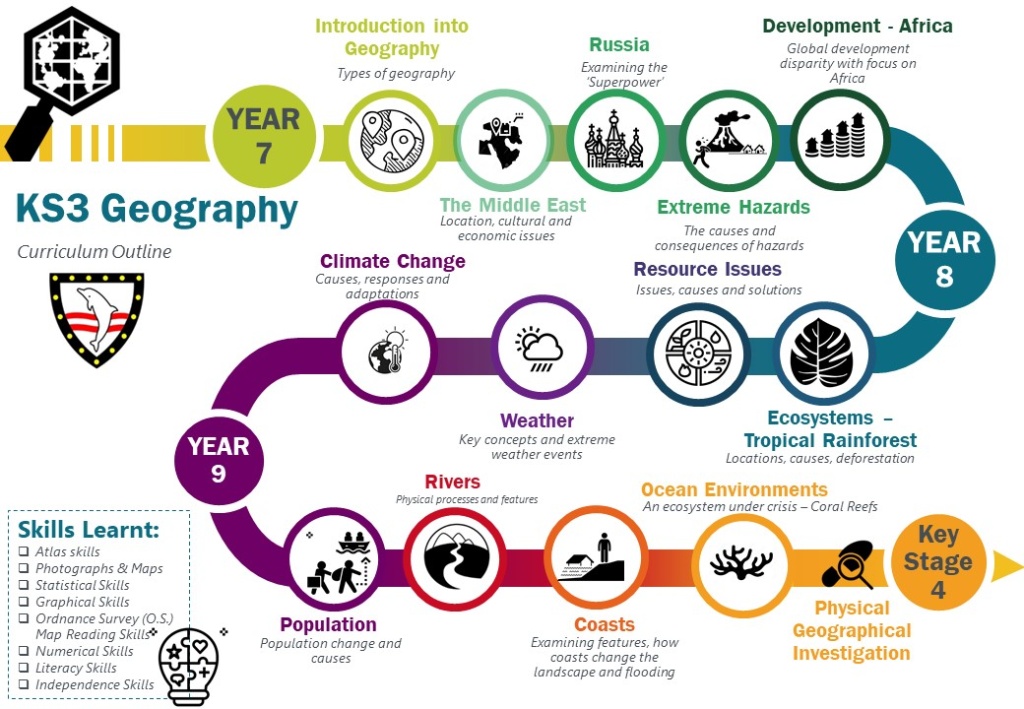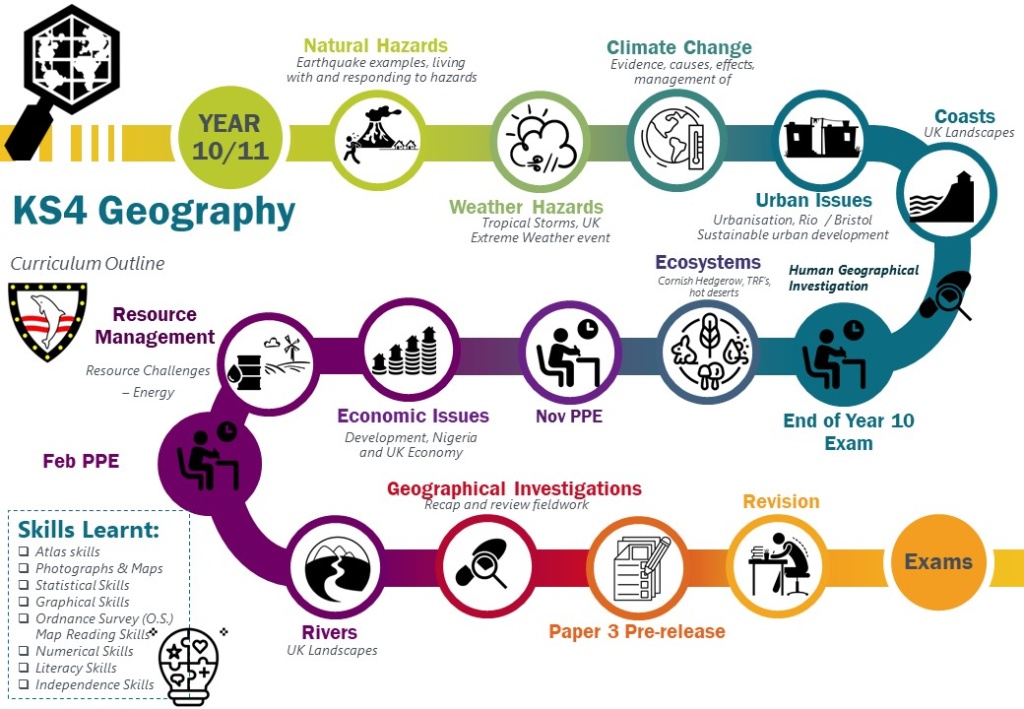Geography
Geography is unique in bridging the social sciences (human geography) with the natural sciences (physical geography).
Geography puts this understanding of social and physical processes within the context of places and regions – recognising the great differences in cultures, political systems, economies, landscapes and environments across the world, and the links between them. Understanding the causes of differences and inequalities between places and social groups underlie much of the newer developments in human geography.
Geography is a dynamic subject; it responds to and seeks to describe and explain the world as it changes. Our students need to grow into informed citizens with a sound understanding of human and natural processes that shape the globe and its people. Geography has the critical role in giving them an understanding of their place in the world.
In Geography, students will learn about:
- The way in which particular places and regions have evolved to be distinctive.
- How to observe, describe, analyse, represent, interpret and report information about the world
- Changes and stability in the Human and Physical worlds including the causes, rates and patterns of change and the prediction of change.
- The world as an integrated system
- A variety of analytical processes including techniques such as GIS and field study research.
In Key Stage 3 these are explored through:
|
Year 7 |
Year 8 |
Year 9 |
|---|---|---|
|
Introducing Geography |
Ecosystems – Tropical Rainforests |
Population Pressures |
|
Middle East – Unit of Study |
Resource Issues |
Physical Landscapes: Rivers |
|
Russia |
Weather |
Coastal Landscapes |
|
Geographical Hazards |
Climate Change |
Ocean Environments |
|
Development |
Geographical Investigations / Fieldwork |
|
|
Africa |
|
|
A curriculum overview calendar for Years 7-11 Geography is available here
Additional information on Key Stage 3 Geography can be obtained by contacting
At Key Stage 4, students opting for GCSE Geography will follow the AQA GCSE syllabus, which is divided into 3 Units of Study:
In Year 10 students work on:
- Unit 1: Natural Hazards, Coastal landscapes of UK
- Unit 2: Urban Challenges
- Unit 3: Physical Fieldwork – Cardinham / Rivers
Year 11 students study:
- Unit 1: Ecosystems – tropical rainforests, Hot deserts, River landscapes of UK
- Unit 2: Changing Economic World, Resource management, Energy
- Unit 3: Human Fieldwork – Falmouth / Tourism
A curriculum overview calendar for Years 7-11 Geography is available here
For the AQA GCSE Geography exam specification please click here:
If you have any questions regarding the Geography curriculum please contact:

